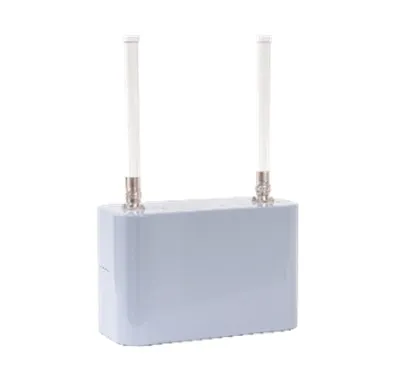Working in partnership with BusTech, Swinburne University of Technology has helped develop the first electric bus to be designed, engineered and manufactured in Australia.
The first concept demonstrator bus was unveiled at the Maintenance Conference and Bus Expo in Melbourne.
According to Pro vice-chancellor, International Research Engagement, Professor Ajay Kapoor, the research and development has involved solving the challenges of integrating electric vehicle technologies using computer-aided engi
July 8, 2015
Read time: 2 mins
Working in partnership with BusTech, 5192 Swinburne University of Technology has helped develop the first electric bus to be designed, engineered and manufactured in Australia.
The first concept demonstrator bus was unveiled at the Maintenance Conference and Bus Expo in Melbourne.
According to Pro vice-chancellor, International Research Engagement, Professor Ajay Kapoor, the research and development has involved solving the challenges of integrating electric vehicle technologies using computer-aided engineering to design and configure sub-systems into the bus platform.
Researchers developed high and low voltage electrical systems for the bus, including the design architecture for electrical circuit motor controls, supervisory control and other control systems to ensure the most efficient operation.”
Professor Kapoor said that a key aspect to achieving product life-cycle cost savings was to come up with a future-proof concept, which will enable upgrades as the technology evolves. On average, the electric bus will be 80 per cent cheaper to maintain than the diesel buses currently being driven in Australia
Professor Kapoor said that Swinburne was well placed to work and conduct research on electric vehicles, bringing together experts from the automotive industry, working alongside academics with expertise in electric vehicle technologies.
“I’d really like to see the Australian government invest in this technology. For the sake of the environment, as well as the future of manufacturing in Australia,” Professor Kapoor said.
The electric bus project is a joint collaboration between BusTech (part of Transit Australia Group), the Australian Government’s Automotive Cooperative Research Centre- AutoCRC and the Malaysian Government.
The first concept demonstrator bus was unveiled at the Maintenance Conference and Bus Expo in Melbourne.
According to Pro vice-chancellor, International Research Engagement, Professor Ajay Kapoor, the research and development has involved solving the challenges of integrating electric vehicle technologies using computer-aided engineering to design and configure sub-systems into the bus platform.
Researchers developed high and low voltage electrical systems for the bus, including the design architecture for electrical circuit motor controls, supervisory control and other control systems to ensure the most efficient operation.”
Professor Kapoor said that a key aspect to achieving product life-cycle cost savings was to come up with a future-proof concept, which will enable upgrades as the technology evolves. On average, the electric bus will be 80 per cent cheaper to maintain than the diesel buses currently being driven in Australia
Professor Kapoor said that Swinburne was well placed to work and conduct research on electric vehicles, bringing together experts from the automotive industry, working alongside academics with expertise in electric vehicle technologies.
“I’d really like to see the Australian government invest in this technology. For the sake of the environment, as well as the future of manufacturing in Australia,” Professor Kapoor said.
The electric bus project is a joint collaboration between BusTech (part of Transit Australia Group), the Australian Government’s Automotive Cooperative Research Centre- AutoCRC and the Malaysian Government.









